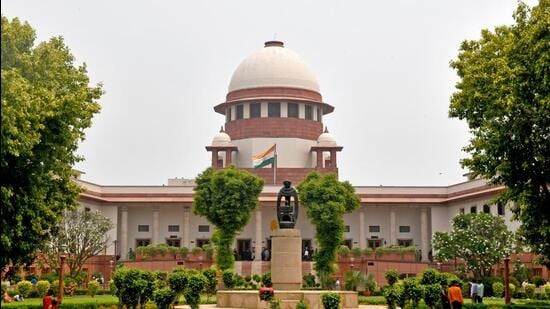Lagatar24 Desk
New Delhi: The Supreme Court on Thursday approved the relaxation of GRAP-4 (Graded Response Action Plan) measures in Delhi and the National Capital Region (NCR), permitting the Commission for Air Quality Management (CAQM) to implement GRAP-2 measures to manage pollution levels. However, the court emphasized that GRAP-4 must be enforced immediately if the Air Quality Index (AQI) exceeds 400.
Court’s Discontent Over Delayed Worker Compensation
The bench of Justices Abhay S Oka and Augustine George Masih strongly criticized the Delhi government for failing to disburse adequate compensation to construction workers affected by the ban on activities under GRAP-4.
The court threatened contempt proceedings against the Delhi Chief Secretary after it was revealed that only ₹2,000 had been paid to each of the 90,000 registered workers, despite a promise of ₹8,000. The Chief Secretary assured the court that the remaining ₹6,000 would be distributed by the following day.
“Why was the full amount not paid? Workers cannot be left to starve. This is not acceptable in a welfare state,” Justice Oka remarked.
Previous SC Stance on GRAP-4
Earlier, the Supreme Court had refused to ease emergency measures under GRAP-4, including bans on truck entry and construction activities, citing the absence of a “downward trend” in AQI levels. The court had also noted non-compliance by NCR states—Delhi, Rajasthan, Haryana, and Uttar Pradesh—with its directions to compensate affected construction workers.
Ineffectiveness of GRAP-4 Enforcement
The bench expressed dissatisfaction with the enforcement of GRAP-4 measures, highlighting that bans on truck entry and construction activities were not being implemented effectively. It reiterated the necessity of stringent action to mitigate pollution during critical air quality conditions.
The relaxation of GRAP-4 measures is expected to provide some respite to affected industries while maintaining readiness to impose stricter controls if pollution levels worsen.







